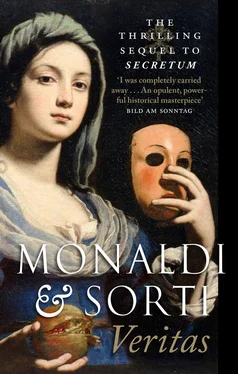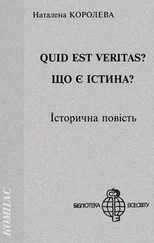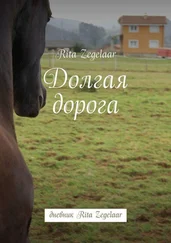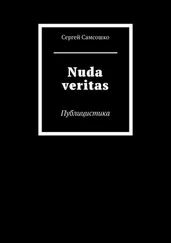Rita Monaldi - Veritas
Здесь есть возможность читать онлайн «Rita Monaldi - Veritas» весь текст электронной книги совершенно бесплатно (целиком полную версию без сокращений). В некоторых случаях можно слушать аудио, скачать через торрент в формате fb2 и присутствует краткое содержание. Жанр: Исторический детектив, на английском языке. Описание произведения, (предисловие) а так же отзывы посетителей доступны на портале библиотеки ЛибКат.
- Название:Veritas
- Автор:
- Жанр:
- Год:неизвестен
- ISBN:нет данных
- Рейтинг книги:3 / 5. Голосов: 1
-
Избранное:Добавить в избранное
- Отзывы:
-
Ваша оценка:
- 60
- 1
- 2
- 3
- 4
- 5
Veritas: краткое содержание, описание и аннотация
Предлагаем к чтению аннотацию, описание, краткое содержание или предисловие (зависит от того, что написал сам автор книги «Veritas»). Если вы не нашли необходимую информацию о книге — напишите в комментариях, мы постараемся отыскать её.
Veritas — читать онлайн бесплатно полную книгу (весь текст) целиком
Ниже представлен текст книги, разбитый по страницам. Система сохранения места последней прочитанной страницы, позволяет с удобством читать онлайн бесплатно книгу «Veritas», без необходимости каждый раз заново искать на чём Вы остановились. Поставьте закладку, и сможете в любой момент перейти на страницу, на которой закончили чтение.
Интервал:
Закладка:
By a strange coincidence, both Atto Melani and Joseph I had their funerals in a church of the Barefoot Augustinians: in Vienna the Augustinerkirche, in Paris the church of the Barefoot Augustinians of Nôtre Dame des Victoires. Atto’s funeral monument (a work by the Florentine Rastrelli, as the chimney-sweep correctly notes), can no longer be seen; it was probably destroyed during the 1789 revolution. His remains are thus forever lost, thrown into the Seine during the revolutionary frenzy, as happened with the royal family of France, including the corpses of Mazarin and Richelieu. However, a copy of the monument can be seen in Pistoia, in the Melani chapel inside the church of San Domenico. The Pistoia cenotaph gives us the only surviving portrait, among the many that existed, of Atto Melani: a bust representing him in his abbot’s robes, with a proud stare, and a capricious cleft in his chin. The authors published it for the first time in the volume they edited, I segreti dei conclavi , Amsterdam 2005.
All the details of the relations between Atto and his relatives (including the sending of candied oranges and mortadellas), the aches and pains of old age, his passion for expatiating on his haemorrhoids, the circumstances of his death, his contacts with the Connestabilessa, the account of the great famine in France in 1709, the financial crisis of 1713, his last words before dying, his burial and a thousand other details, are confirmed in his letters kept in Florence in the State Archive (fondo Mediceo del Principato 4812, lettere al Granduca di Toscana e al suo segretario, l’abate Gondi ) and in the Biblioteca Marucelliana (Manoscritti Melani vol.9, lettere ai parenti in Toscana ). As regards the relations between Atto Melani and Connestabilessa Maria Mancini Colonna, see the historical notes in the appendix to Monaldi amp; Sorti, Secretum , Edinburgh 2009, where many passages from Melani’s letters are published for the first time.
In Atto’s correspondence one also learns that in 1711 he was indeed one of those who collaborated with Torcy, the powerful prime minister of the Sun King, as he proudly recounts on the third day. But the letters sent from France to Tuscany during those years reveal that at the French court his opinions were no longer heeded, which is not surprising, given his advanced age. In a letter from Paris to Gondi on 23rd February 1711, for example, Atto reveals that he travelled to Versailles but that Torcy did not receive him.
Atto’s desire, despite his extreme old age, to end his days in Tuscany is also expressed (cf. also the notes in the appendix to Secretum, op. cit. ). On 17th December 1713, eighteen days before his death, he wrote:
I have already resolved to go to Versailles to beseech the King to grant me permission to spend two years in Tuscany, to see if my native air will restore my strength and, what is most pressing, my sight; because not being able to write by hand myself, I am no longer of any use to His Majesty and His Ministers; in particular because the older ones, whose confidence I had, like M.r di Lione, Tellier and Pompone, have passed away; they acted as protectors with the King, whereas now, if I do not go and speak to him myself, it comes into no one’s mind to do so. I could hope that Signor Marchese de Torcy would favour me, but he is so circumspect that I have never been able to get him to present M. de Maretz with a memorandum for the payment of my pension .
In Florence Atto was not held in any great esteem either. On 30th of the preceding March, Gondi wrote to the Grand Duke of Tuscany:
[Abbot Melani] takes the trouble to give me his opinion. . thinking that I wish to be so enlightened .
However, Gondi let him have his way just to appease Atto’s relatives in Tuscany.
From the family’s correspondence one learns that on 12th April 1711 Atto did indeed have the colic, as described by the chimney-sweep. The false blindness, which he adopts mainly to reject his relatives’ requests for financial support, is confirmed by the letters that he sent in those years from Paris to Tuscany. On 23rd March 1711 he wrote to Gondi: “My health is always vacillating on account of the variety of weathers that we have here, but even more because of my great age, considering that although I can no longer read or write with my own hand, God grants me the grace of retaining my mental faculties at the age of eighty-five, which I will attain on 30th of this month.”
His blindness, which in 1711 already seemed to be well advanced, only started in actuality two years later: on 6th February 1713, when he had truly lost his sight, Atto wrote to Luigi Melani, Domenico’s brother: “And then as a last stroke of ill luck, I can no longer read or write. And yet Monsieur de la Haye, my friend, regained his sight at eighty!” Afflicted by faltering memory, like so many old men, Abbot Melani had forgotten that he had been claiming to be blind for quite some time now.
Camilla de’ Rossi
The spelling today is Camilla de Rossi, without the apostrophe.
A certain Camilla de Rossi was born and lived in the Trastevere quarter of Rome. She was a shopkeeper, from whom Franz de Rossi borrowed his bride’s new name. Her will is still in existence (Archivio Capitolino of Rome, 6th December 1708, deeds of notary Francesco Madesciro).
As the Chormaisterin herself recounts, Franz de Rossi was a musician at the court of Vienna and died of Lünglsucht (phthisis) at the age of forty, on 7th November 1703, in an apartment block in the centre of the city, the Niffisches Haus. The Vienna City Archive holds the deed ( Totenbeschauprotokoll ) certifying the death of Franz de Rossy, using the spelling often found in public administration documents for foreign names:
Der Herr Frantz de Rossy königlich Musicus im Nüffischen Haus, in der Wollzeile, ist an Lünglsucht beschaut. Alt 40 Jahre .
Franz de Rossi is referred to as “königlicher Musicus”, a musician of the King and not of the Emperor; he was therefore in the service of Joseph I, who in 1703 was still King of the Romans, and not of his father, Emperor Leopold I.
The death is also reported in the Wiennerisches Diarium , 1703, n. 28, 7-10 November 1703:
Den 7. November 1703 starb Herr Frantz Rosij / Königlicher Musicus im Nivischen Haus in der Wohlzeil / alt 40. Jahr .
However, almost no trace remains of the Chormaisterin, apart from the scores and libretti of her oratorios. What Gaetano Orsini tells the chimney-sweep is true: the composer never received any payment for her musical services. The lack of any mention in the books of the imperial administration makes the figure of Camilla almost invisible. Fortunately the Wiennerisches Diarium , as the authors have discovered, reports the performances of oratorios on Good Friday in the same years that Camilla de’ Rossi’s oratorios are dated (1707–1710), and it is no accident that Joseph I attended them, as he appears to have commissioned Camilla’s four oratorios. Apart from this indirect confirmation of the activity and presence of the composer in Vienna, all of the authors’ searches in the archives have proved fruitless: Vienna State Archive — Hofarchiv, OMaA (Obristhofmarschallamtabhandlungen) Bd. 643 (Index 1611–1749); Bd.180 (Inventaria 1611–1749); Bd.181 (the valet Vinzenz Rossi, probably the cousin of Franz mentioned also by the chimney-sweep, appears there); OMeA (Obristhofmarschallamt), Protokolle 6 e 7; Karton 654, Abhandlungen 1702–1704; Hofkammerarchiv, NÖHA (Niederösterreichische Herrschaftsakten), W-61/A, 32/B, 1635–1749, Fol. 455–929: list of various writings by musicians employed by Hofkapelle, Kammermusik and Hofoper (some years are missing, with a large gap from 1691 to 1771); Gedenksbücher, 1700–1712. No trace of Camilla in the birth, marriage and death certificates ( Geburts-Trauung- und Sterbematriken ), which start from the second half of the eighteenth century; the same is true of the Conscriptionsbögen (a sort of census of homes and occupiers), which do not start until 1805; above all, there is no trace of any payment to Camilla in the private coffer ( Privatkassa ) of Joseph I, from which payments were made to various musicians. Susanne and Theophil Antonicek ( Drei Dokumente, op. cit. ) have published the list of musicians paid by Marquis Scipione Publicola di Santa Croce in the years 1709–1711 as “music superintendent” of Joseph I. No mention is made in these documents (pp. 11–29) of Camilla de Rossi.
Читать дальшеИнтервал:
Закладка:
Похожие книги на «Veritas»
Представляем Вашему вниманию похожие книги на «Veritas» списком для выбора. Мы отобрали схожую по названию и смыслу литературу в надежде предоставить читателям больше вариантов отыскать новые, интересные, ещё непрочитанные произведения.
Обсуждение, отзывы о книге «Veritas» и просто собственные мнения читателей. Оставьте ваши комментарии, напишите, что Вы думаете о произведении, его смысле или главных героях. Укажите что конкретно понравилось, а что нет, и почему Вы так считаете.











